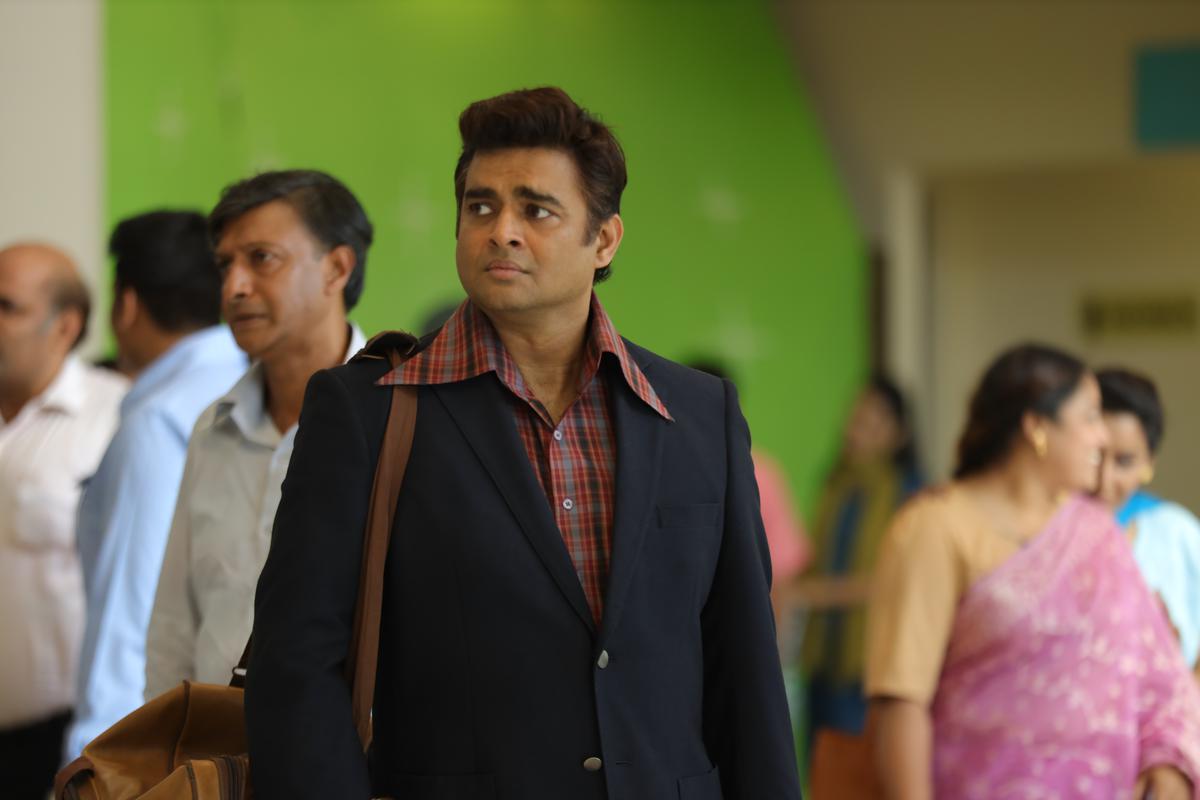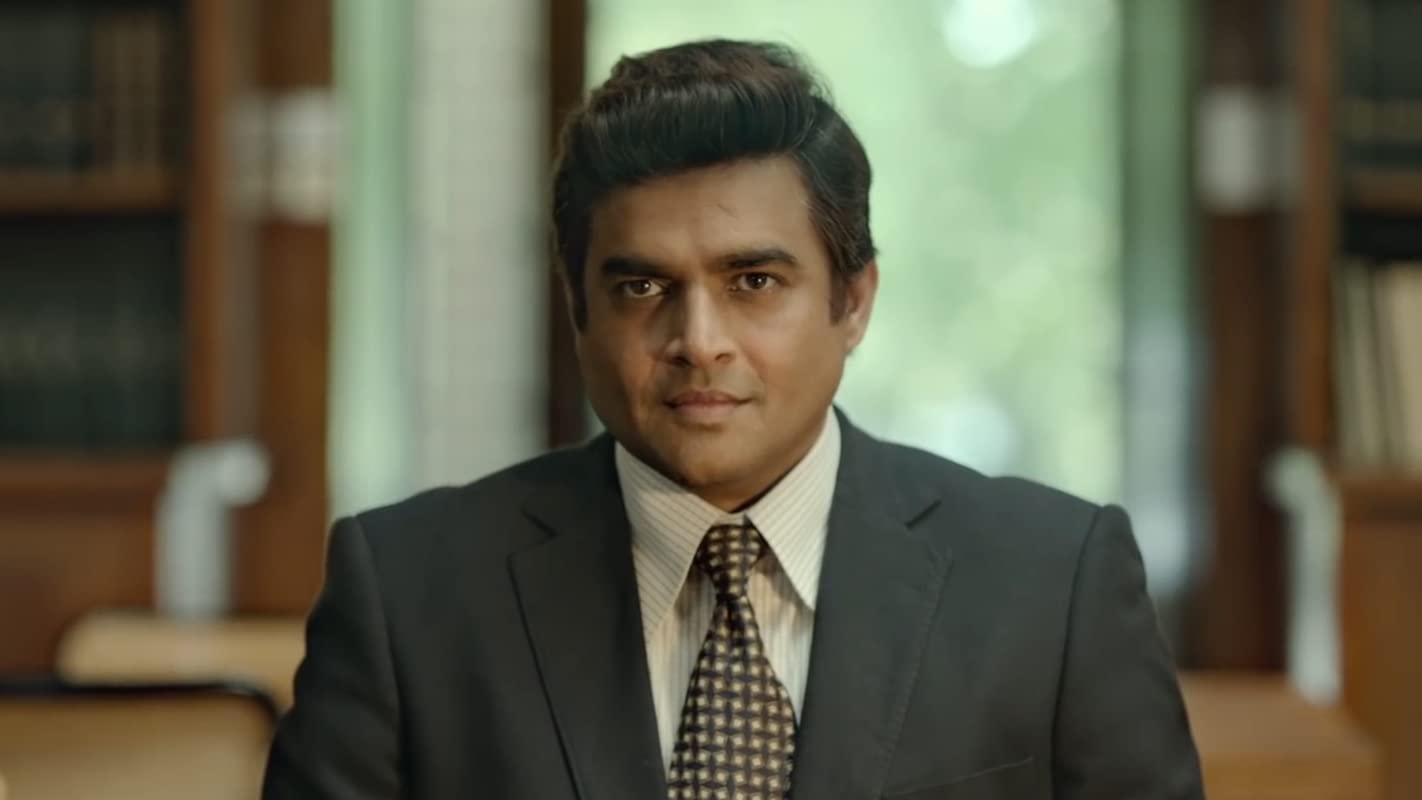Dr. S. Nambi Narayanan is an Indian aerospace engineer who formerly worked at the Indian Space Research Organization. After completing his degree in mechanical engineering, he started his career in ISRO as a technical assistant at Thumba Equatorial Rocket Launching Station. Dr. Narayanan led a team of 40 engineers who completed the acquisition of Vikas bipropulsion engine technology from France’s Societe Europeenne de Propulsion. When India’s rocket engines depended on solid propellants, Vikas was the first engine to use liquid propellants. In many ways, Narayanan pushed India’s journey in rocket science ahead by miles and allowed the Indian space research program to take a roaring turn.
The aforementioned is the most commonly known profile of Dr. Narayanan for an introduction. His portfolio boasts of remarkable scientific achievements. His life had a critical turn when he was arrested by Kerala police and the Intelligence Bureau on account of alleged espionage. He was one of the six people accused, including another ISRO scientist. He and his colleague were accused of receiving money in exchange for transferring sensitive documents pertaining to rocket engines to two Maldivian women suspected of being linked with spy networks. It was implied that Dr. Narayanan sold the country’s secrets to its political enemies. Dr. Narayan was acquitted of all charges and subsequently compensated by the state, albeit with a lot of struggle.
Now, this is exactly what the film is about. In many ways, I spoil the film for you but then again, can you spoil a story already in the public domain? A simple internet search can fetch all this information. But there is more to what meets the eye. Naturally, a film on the real life of a person reveals many personal aspects of the story, the validity of which cannot be ascertained immediately unless you are well versed with the source material. These screenplay fillers that create a human for our understanding are often a part of murky waters where truth is considered a more liberal term. It is in this realm that films enjoy the greatest scope of fiction. The filmmaker(s) experience the challenge of writing a strict connecting fiction for two terminals of real-life events that characterize the life of your protagonist(s). And such filament-like narratives spread across a biographical film.
Rocketry is not devoid of them. In charting the journey of a man, it goes through crucial checkpoints, all of which hint at an inevitable eventuality. If you know it, you wait for its arrival. If you do not know it, you will be able to sense it. This argument is based on the pacing of the first act. There are neither interruptions nor engagement with a sequence to a great degree to save screentime. It is a smooth flow of an overachieving life, the successes of which are earned part by merit and part by confidence. This confidence is tropical, for this is the essential attribute found in any prodigy, as people like to imagine. It is borderline narcissistic, often arrogant, and almost always cruel. It oscillates between passion and obsession for a cause. It is not that such characters are not thrilling to watch. But the repetitiveness of this tradition has rendered these characters predictable.
Related to Rocketry – Jugjugg Jeeyo [2022] Review – Conservative Propaganda in the Cloak of Family Comedy
Additionally, it has contributed to the building of a stereotype that this is how geniuses are. The comfortable bracket makes it easy for us to approach humans. Nambi Narayanan becomes an easy character by becoming what he appears to be on the surface.
Another question: if you perfectly know your protagonist stands out from the rest of the names due to his credentials, then what is the necessity to create faux elements that separate him from the rest in a physical and spiritual sense? Why would he be speaking when everyone else is quiet and be quiet when everyone else is speaking? Why would he be standing above the rest? Why would more people approach him than others? Why would he be gifted with flamboyance while the rest find themselves in shackles regarding social behavior?
Most importantly, why should he be the one to get the sole credit? These questions aren’t about Dr. Narayanan himself but the character that has been written. It can be argued that this has cinematic value or is his story. But I want to examine why everyone is a propeller for the protagonist and plays no other significant role? Why do filmmakers think adding any weight or providing any nuance to anyone besides the protagonist will compromise his presence? Because apparently, everyone is an amplifier to the man’s stature in the center. And much to the misfortune of films, you can now predict the weight of a character by observing how much nuance their act has been provided with regardless of screentime.
Now the question we are led to from here is: does predictability puncture a screenplay, especially in a film the story of which is publicly known? The answer is: Especially in a film, the story of which is publicly known.
breadcrumbs. They have reached there mentally before the film has reached. And now they are waiting for the film to reach the eventuality they know. It is upon the filmmaker to artificially create an atmosphere of anxiety for the audience so that they either dread or get excited about what is to arrive. The only possible way to do this is to make the journey unpredictable. And that can be done using a combination of writing and editing.
Rocketry’s writing is simple. It is a character-centric drama written linearly. There are dynamic cuts appearing in a flash in the first half of the film, hinting at traumatic experiences. In the present-day timeline, an old Nambi Narayanan is narrating his life talking to a talk show host. Life is our primary screenplay. It entertains due to some of the quirky elements and exciting life of Dr. Narayanan in his developmental days. It is a clean portrait, and while it may appear that the film is showing his darker sides too, it is only to establish Dr. Narayanan as a true blue patriot.
Establishing his patriotism is important to win the audience’s faith in his favor when the second half sets in. The second half is dedicated to Dr. Narayanan’s persecution by the state, later proven false by the supreme court. There is not enough room for sketching the inner turmoil of our protagonist. While the first half makes him a hero, the second half reduces him to victimhood. You feel proud, and then you feel pity. These responses aren’t earned but manufactured because, as an audience, we know the basic facts, and all that is left to do is to create sequences that elicit the intended feelings.
Also, Read – Sherdil – The Pilibhit Saga [2022] Review – An Entertaining Satire that Succumbs to Pomposity
It is not a documentary, and by virtue of cinematic liberties, it is allowed to function as an entertainer. Therefore, it has to be taken into account that Rocketry cannot be treated as a lesson in history but as a personal letter of admiration to the man by the filmmaker. When the authenticity of the truth is brought into the probe, it leaves major unanswered gaps in the narrative. These gaps cannot be demystified using the supreme court judgment that acquitted and compensated Narayanan, given the recent developments in the case. It is not so simple a case about the state framing a scientist in espionage and then a central agency rescuing him from persecution, followed by his long battle to get justice in the form of compensation.
Compensation becomes imperative as it would be evidence of Narayanan’s innocence while, at the same time, it would hold the state accountable. This story is beyond the scope of the film to encapsulate, for it is about multiple allegations, pieces of evidence, and truths crossing each other, all of which were conveniently buried in their own time to escape scrutiny in a geopolitically unstable world in the post cold war era. There is a political angle as the case found exclusive sympathy with the emergence of the BJP in power, which used it as a pitch against UPA.
To believe in one’s innocence, especially when one has been a valuable national asset, is a comfortable and legal position. But this position shouldn’t be preordained. Notwithstanding the love and admiration for a scientist like Dr. Narayanan, Rocketry must not be treated as a source of historicity. And if you wish to treat it as one, you must read into the conflicting facets of the case.
When all things considered, Rocketry becomes a hagiography at best and propaganda at worst. Truth, after all, is not obligated to be suitable to one’s taste or status quo. And the same truth doesn’t have a singular color across people, events, and timelines. I am neither a truth sayer nor someone from the judiciary who was there when it was happening. I am only someone who doesn’t see a divine being in the protagonist and, therefore, can take into account all possibilities. When water is muddy, I would instead not drink it. So I would also not argue against the film having inaccuracies. I’d rather you consider that Rocketry isn’t accurate in an absolute sense. Hence, it needs to be viewed as a fictional retelling.
When it comes to the performances, Sam Mohan shines in his performance as Unni, a minor role with a major influence. Madhavan, being the protagonist, attempts to carry gravitas and age with the aging of his character in terms of body language, but he refuses to do much with his voice. Madhavan is a monotonous actor. It is hard to differentiate his characters from one another.
Rocketry was primarily marketed for its makeup excellence for Madhavan’s transformation into Dr. Narayanan. Jitendra Baburao Shinde deserves some applause for the same in this case. The film’s marketing is a positive aspect, considering how Madhavan and the team consistently played on the scientist’s name even when the project involved superstars like Shah Rukh Khan and Suriya. Rocketry respects its source of inspiration in a practical sense.
The post-climax scene creates a repulsive atmosphere in this film. It emotionally manipulates everyone involved to be apologetic to Narayanan for having done to him what he went through. Then it contrasts what Narayanan’s life could have been and what he chose for his country. And then follows real-life footage from his honoring ceremony where he was awarded Padma Bhushan.
All of this is fine, but there is a subtle recognition of how a change in the political power equation reinstated the honor of the scientist after years of struggle. There is a close-up shot of the prime minister, clapping as one of the guests at the ceremony, as his voiceover talks highly of the Indian scientist community. This is in addition to the fact that a BJP politician was the one to nominate Narayanan for the award and how the party politically appropriated the case for its benefit.
The directorial choices are not only revealing but also inefficient in this regard. Madhavan directs the film with confidence in its ability to be a document of truth that everyone must know. But he continues to be in awe of the person he is talking about. I believe that you shouldn’t make a film on anyone if your perspective is unidimensional. His bias is so apparent in favor of the protagonist that he makes rocket science a one-man’s game and doesn’t refer to any source material, contrary to Narayanan’s autobiographical and biographical accounts. Eventually, no character gets to have a remarkable presence of their own.
Related to Rocketry – A Man of Integrity (2017) Review – An Intense Slow-Burn Thriller and a Scathing Critique of Post-Capitalist Society
Rocketry is a run-of-the-mill tale of one of the most important people from India’s space research experience and through one of the most complex geopolitical periods in modern history. When the film was announced, it prompted me to read about Dr. Narayanan, only to reveal to me that there is a possibility that the USA implicated him to cause a setback to India’s rocket science program for decades.
Today, this claim of an international conspiracy between nation-states is not available to read anywhere. The original claim that Dr. Narayanan’s persecution pushed India’s space research program stands by courtesy of Dr. Narayanan himself. But The Caravan claims to possess ISRO documents revealing that Dr. Narayanan had submitted papers asking for voluntary retirement prior to the espionage case, invalidating the claim that his persecution could have pushed India back in the space race. Who knows what the truth is? We can only hope for the free flow of information and complete transparency until we achieve it. Today, we can take refuge in the fact that India touched the Moon and Mars. And it was our scientists who made it possible in a hostile environment such as that of our society which has a greater religious temperament than a scientific one and where funds for research are scarcer than one can imagine.





![Simulation (Tamaroz) [2017]: ‘TIFF’ Review](https://79468c92.delivery.rocketcdn.me/wp-content/uploads/2017/09/simulation_03_highonfilms-768x384.jpg)
![Fireworks Wednesday [2006] : Doubt & Remorse](https://79468c92.delivery.rocketcdn.me/wp-content/uploads/2017/04/Fireworks-Wednesday-768x432.jpg)
![79 Parts [2020] Review – A familiar crime-comedy that even fails to imitate](https://79468c92.delivery.rocketcdn.me/wp-content/uploads/2020/09/79-Parts-Movie-Review-highonfilms-1-768x477.jpg)


